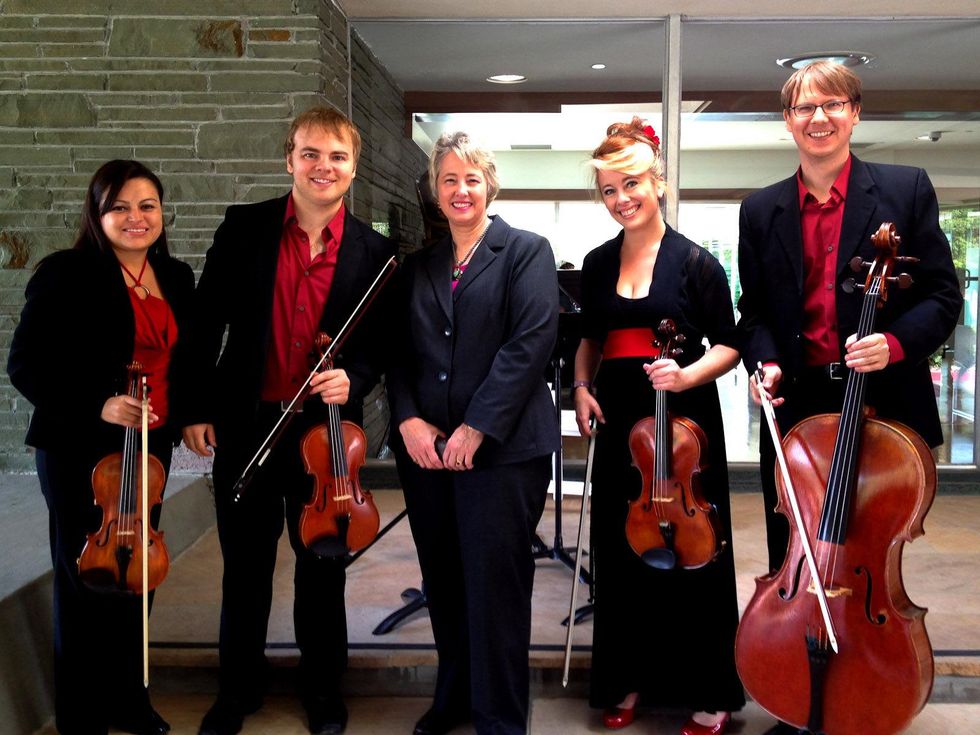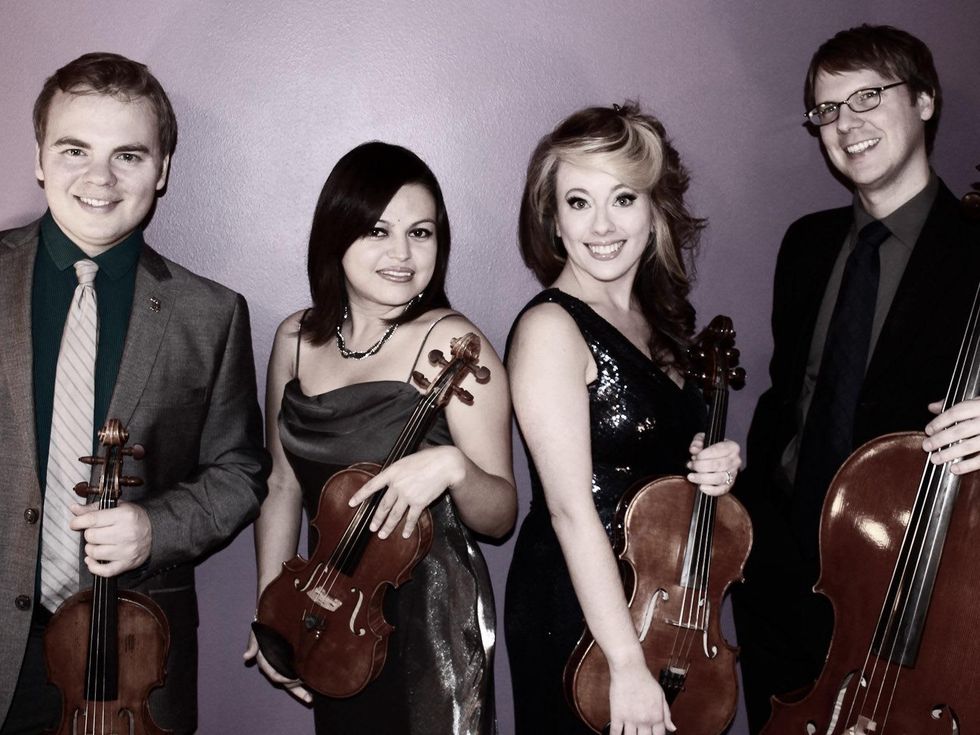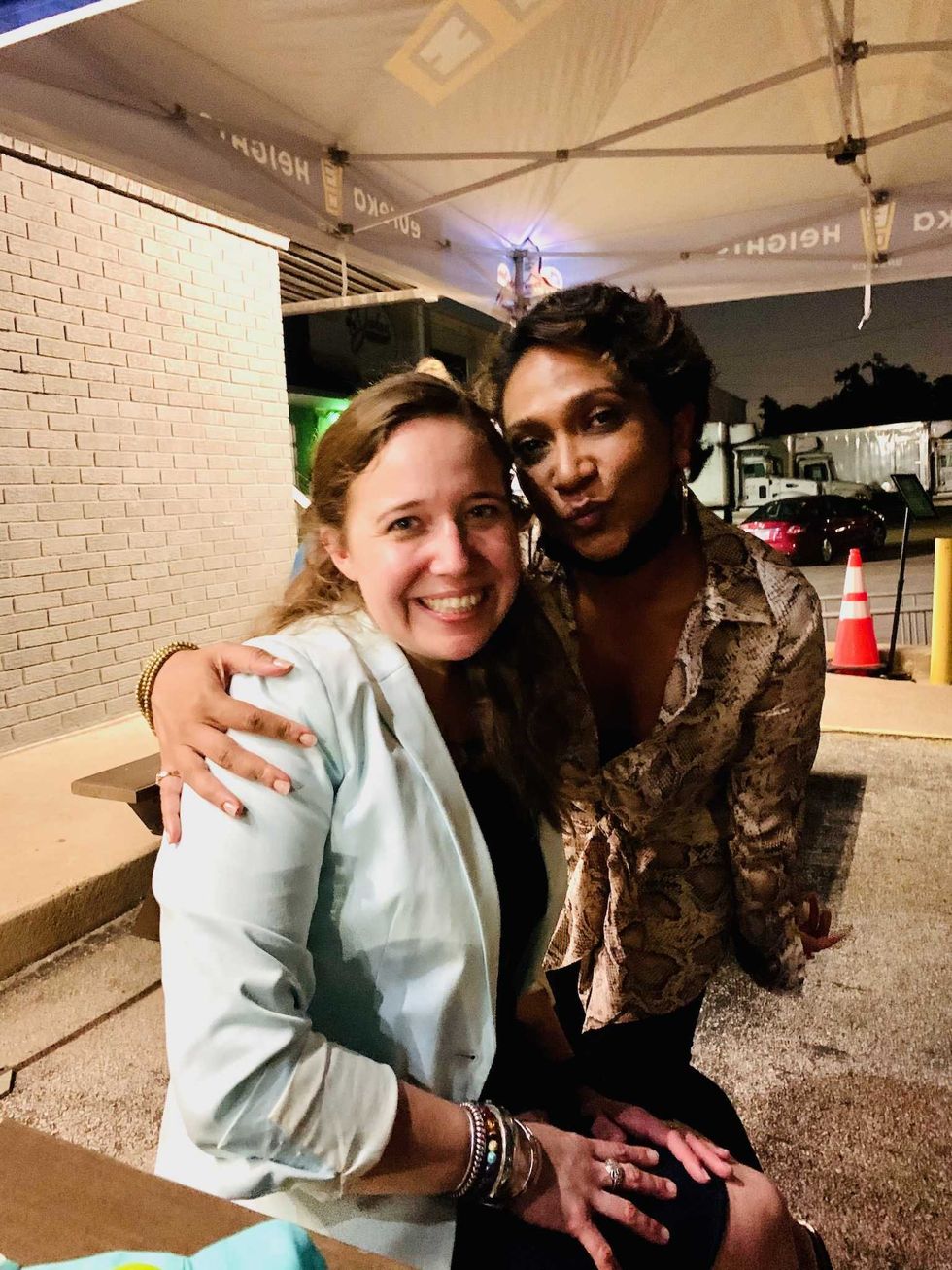Gotta have a schtick
Fiddling around: Apollo Chamber Players fuse folk traditions with classical music
Classical musicians can learn a bounty of survival skills from the ridiculousness that is Mel Brooks' The Producers. First, you have to have a shtick. Second, when you've got it, flaunt it. Third, be your own producer. And finally, keep it gay — a reminder that although the genre is serious business, it's still a form of entertainment.
When violinist Matthew Detrick was searching for Apollo Chamber Players' signature stamp, he looked no further than his upbringing. Alongside his father, who plays guitar, banjo and harmonica, and his mother, a violinist, family time included fiddling around classic tunes and folk melodies. Bingo.
"Muses of Love and Folksong," a concert set for 6 p.m. Sunday at Shepherd School of Music's Duncan Recital Hall, continues the ensemble's journey with music rooted in global folk traditions. Think of an Apollo performance as a survey of the crossroads between the tuneful folklore that flourished around the fine art of classical music. This raison d'être is etched in the quartet's mission, which incorporated as a nonprofit in 2009.
Although the group has experienced some personnel changes recently — violinist Timothy Peters moved overseas to accept a post with the Malaysian Philharmonic Orchestra and violist Matthew Carrington returned to the Louisiana Philharmonic Orchestra, a position he held previously for one year — two new ladies are balancing the foursome's sound, as they describe it, with feminine flair.
In fact, they each play a distinctive role.
Detrick usually pushes for faster tempi. Cellist Matthew Dudzik tends to slow things down. Newcomer, violinist Anabel Ramirez, who regularly performs with the Houston Ballet, Houston Grand Opera and Mercury, wants a steady pulse. In true viola spirit, Whitney Bullock, who holds the principal chair of the Symphony of Southeast Texas and is an instructor for the Michael P. Hammond Preparatory Department at the Shepherd School of Music, cares about one thing.
"I just want everyone to be happy," she quips.
On the program of this weekend's musicale are Beethoven's String Quartet in E Minor, Op. 59 No. 2, Bartok's String Quartet No. 1, Liszt's Romance oubliée for viola and piano, Josef Suk's Love Song, Op. 7 for violin and piano and folk songs from Eastern European and Hungarian provenance. The selections are unified by the theme of unrequited love and inspired by the composers' enduring affection for folk melodies.
"All composers are influenced by folk music," Detrick explains. "Their cultural backgrounds and studies imbue their compositions with folk flavor, either in abstract form or through direct quotes."
"We score our own arrangements — and we're building quite a large library."
The Russian flavor in Beethoven's score, Dudzik says, is evident in the third movement titled Theme russe, a motif that Modest Mussorgsky also set in his opera in Boris Godunov. Likewise, Bartok's String Quartet No. 1 is teeming with folk airs. But it's the back story of its genesis that layers food for thought.
"Bartok's quartet was written when he was about to embark on a research project with Zoltan Kodaly," Ramirez says. "He was in the midst of documenting folk songs of the countryside. But more than that, he was at the time desperately in love with Hungarian violinist Stefi Geyer, who didn't welcome his advances even though he wrote his first Violin Concerto for her."
The approach to concert repertoire begins with casual conversation during rehearsals. Each member contributes their two cents so that recitals are satisfying for both the musicians and audiences.
Yet there's a challenge. Much folk music isn't written down. It's passed down from generation to generation as matter of practice. The solution? Write your own.
"You can't just go online an order Greek dances, Venezuelan waltzes and Moldavian songs," Detrick explains. "So we score our own arrangements — and we're building quite a large library. Lately, we've been getting requests from people around the world who want to buy our music."
Plans are in the works to copyright and publish the collection, which includes a simplified student version for educational purposes.
The additional revenue stream is part of a business strategy that Apollo is refining with guidance from the Houston Arts Alliance. The Capacity Building Initiative, a six-year program that invests in arts organizations through mentorship, grants and administrative support, is allowing Apollo to develop an organizational foundation to strengthen its fiscal health.
"We are on our way to fulfill every musicians' dream," Detrick says. "We are going to Carnegie Hall in October. We are producing our own show. We want to present a concert that embodies the cultural diversity of Houston."
With a fundraising goal of $12,000 and $9,000 already in the piggy bank, Apollo won't be wondering, as Max Bialystock pondered, where they went right.
___
Apollo Chamber Players presents "Muses of Love and Folksong" on Sunday, 6 p.m., at Rice University's Shepherd School of Music. Tickets are $20 for general public, $15 for seniors and Rice alumni, $10 for students, and can be purchased online.



 Collaborators Elizabeth Sosa Bailey and Fleurette S. Fernando.Courtesy of Elizabeth Sosa Bailey
Collaborators Elizabeth Sosa Bailey and Fleurette S. Fernando.Courtesy of Elizabeth Sosa Bailey